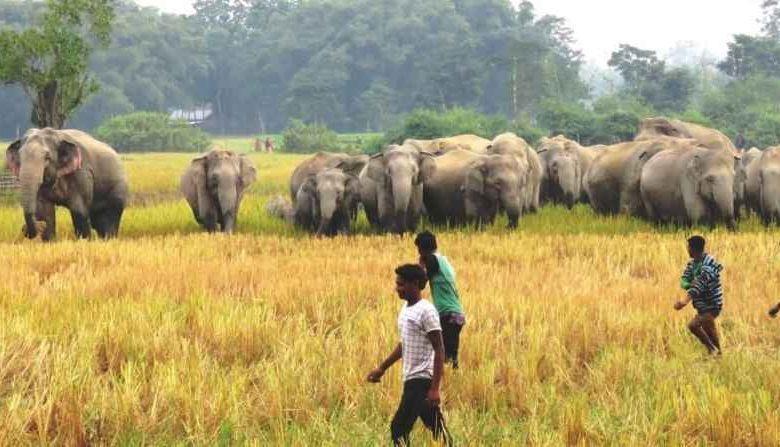Africa-Press – Tanzania. THE government is constructing dams within national parks, build electric fences and implementing robust education campaigns for communities as part of a multi-pronged strategy to address human-wildlife conflict, particularly involving elephants.
Deputy Minister for Home Affairs Daniel Sillo informed the august House yesterday that the construction of dams in protected areas is a key initiative to prevent wild animals from venturing into human settlements in search of water, especially during dry seasons.
He said the measure aims to significantly reduce incidents where dangerous and destructive wildlife stray and enter residential areas.
“The government is running education campaigns for citizens to understand elephant behaviour,” Sillo explained.
“Secondly, we are building dams. We are also constructing electric fences. Citizens should stop engaging in agricultural or construction activities in elephant corridors,” he said.
These measures are designed to contain wildlife within protected areas, foster peaceful coexistence between humans and wildlife and conserve elephant habitats outside designated parks.
Sillo was responding to a question from Luhaga Mpina, Member of Parliament for Kisesa Constituency, who sought to understand government interventions to control elephants causing havoc outside their habitats.
The deputy minister also mentioned the use of modern technology, such as fitting elephants with special communication collars to allow authorities to obtain real-time data on their movements and intervene before they pose a threat to human life or property.
Responding to another inquiry from Iringa Urban MP Jesca Msambatavangu, Sillo said the Tanzania Wildlife Management Authority (TAWA) research indicates that elephant temperament is not static but highly flexible and reactive, adapting to their experiences and perceived threats.
“TAWA conducts research frequently. What we’ve learned is that elephants are animals whose behaviour changes constantly. When they are hunted, they become very dangerous. Where citizens have stopped poaching, their aggression decreases. But if they feel they are being hunted, they become aggressive,” he said.
He said the insight from the studies shows that when elephants perceive themselves to be hunted, their survival instincts lead to increased aggression.
Conversely, a reduction in poaching activities tends to correlate with a decrease in elephant aggression, promoting safer interactions.
Ms Msambatavangu’s question had probed the government’s strategies for fostering harmonious coexistence between humans and elephants.
Earlier in his address, the Deputy Minister detailed specific interventions in conflict-prone areas.
In 2021, to tackle the persistent challenge of dangerous and destructive wildlife, particularly elephants, the government established a specialised camp in Longido District.
This facility’s primary focus is to control problematic wildlife. The camp operates with an 18-member squad, comprising 8 conservators and 10 Village Game Scouts (VGS).
This team is equipped with one vehicle and four motorcycles to facilitate their operations in managing aggressive and destructive wildlife, especially elephants, in the villages of Engikaret and Kiserian within Engikaret Ward, Longido District.
The government continues to implement various measures to address humanwildlife conflict in the area, including conducting rapid response patrols.
Between July 2024 and March 2025, 34 such patrols were carried out in Engikaret Ward to manage incidents. Additionally, educational outreach on protecting oneself from dangerous and destructive wildlife was provided to 1,640 people in Engikaret and Kiserian villages from July 2024 to April 2025.
These remarks were in response to a question from Zaytun Swai (Special Seats), who sought to understand the government’s strategy for controlling elephants that have invaded Engikaret Ward in Longido.
For More News And Analysis About Tanzania Follow Africa-Press







